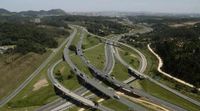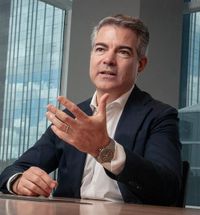Grupo CCR, one of the largest mobility infrastructure companies in Brazil, has announced a significant rebranding initiative. As of March 21, 2025, the company will officially change its name to Motiva. This decision marks the most substantial brand repositioning in the company's 25-year history and reflects its evolution from a road concessionaire to a multimodal operator.
The announcement was made on Friday, with an official approval required during a Shareholder General Meeting scheduled for April 23, 2025. Should the shareholders consent, the new branding will come into effect on April 24, 2025, along with a new stock ticker on the Brazilian stock exchange (B3), set to debut in May.
Motiva, derived from the Latin word "motivus," meaning "that which moves" or "to cause movement," encapsulates the essence of the company’s expanded operations, which encompass highways, airports, trains, subways, and light rail vehicles (VLTs) across Brazil and three other Latin American countries. The rebranding project, in collaboration with FutureBrand, will unfold over the next two years, with a comprehensive rollout beginning at the end of April 2025.
CEO Miguel Setas explained the reasoning behind the name change. He pointed out that the acronym "CCR (Companhia de Concessões Rodoviárias)" no longer adequately represents the company that has significantly broadened its portfolio in recent years. “CCR originally meant 'Company of Road Concessions', but today we manage airports, subways, and trains, among other modalities,” Setas stated, emphasizing the need for a name that reflects the firm's current realities.
The rebranding will start with the company’s main offices, transitioning to operational concessions progressively until 2026. Currently, CCR operates 3,615 kilometers of highways, including the prominent Via Dutra, along with 17 airport terminals in Brazil and three additional terminals in Ecuador, Costa Rica, and Curaçao. With this extensive reach, the company plays a vital role in the region's infrastructure landscape.
With approximately 3 million passengers transported daily through its urban mobility services, and 120 managed stations in major cities like São Paulo, Rio de Janeiro, and Salvador, the transformation into Motiva is positioned to enhance its alignment with stakeholders while also updating its corporate identity.
The investment into the new brand identity is approximately R$ 4 million, evidencing the seriousness with which the company approaches this transition, aimed at modernizing and strengthening its image. This endeavor has been in the works for nine months, intertwining a strategic reevaluation of its corporate structure and identity.
The new visual identity will feature a shift from the previous grey and burgundy color scheme to blue, chosen specifically to distinguish Motiva from its competitors in the infrastructure sector. Additionally, the new logo comprises three waves, symbolizing fluidity and movement, aligning with the company's commitment to improving lives through enhanced mobility solutions.
“Motiva is, above all, a commitment to our clients, people, and shareholders,” Setas added. The changes not only preserve the company’s rich history but also project towards a sustainable and customer-centered future. The revised brand seeks to create a closer connection with its audience while embracing technology and sustainability.
At the root of this transformation is the Acceleration of Value Plan (PAV), which consists of various initiatives focusing on financial, operational, and sustainability goals, aligning with the long-term vision of Motiva. This strategic framework, which includes the Ambition 2035 project, aims to solidify the company's prominence within the sector.
In conclusion, Grupo CCR's transition to Motiva signifies more than just a name change; it represents a broader commitment to evolving with the transportation needs of modern society while retaining the values that have shaped its success over the past 25 years.




